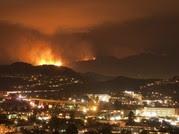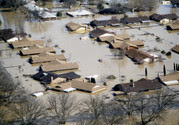The EPA Dishes Out New Air Quality and Emergency Advice on its Website

Announcing EPA’s Updated Emergencies and IAQ Webpage
Preserve a Healthy Indoor Air Quality During and After Emergencies and Disaster Events
People spend most of their time indoors and rely on indoor spaces for shelter. Weather-related and man-made emergencies and disasters can damage homes and buildings and make the air indoors unhealthy to breathe. With climate change, weather-related emergencies are becoming more frequent and more severe.
EPA’s updated Emergencies and IAQ webpage provides tips on how to prepare for, respond to, and recover from weather-related and man-made emergencies and disasters that affect indoor environments, including:
- Wildfires, Volcanic Eruptions, and Dust Storms
- Power Outages
- Hurricanes and Flooding
- Extreme Heat
- Snow and Ice
- Earthquakes
- Chemical, Biological, and Radiological and Nuclear (CBRN) Threats
Stay Up to Date on Emergencies & IAQ
  Join our Emergencies and IAQ subscriber list for updates and information on healthy indoor air and emergency disasters. After signing in, click on “Subscriber Preferences” and then “Add Subscriptions” (near the bottom of the page). Next, select “Emergencies and IAQ” and any other topics that interest you. |
Check Out What’s New!
Below are some examples of different types of emergencies that have been added to our Emergencies and IAQ webpage.
  |
Extreme heat events (heat waves) are expected to become longer, more frequent, and more intense. Some regions of the US have already experienced unprecedented heat waves. A recent heat wave in Washington state resulted in 112 deaths and other heat-related impacts/illness (as of July 19, 2021). Learn more about extreme heat and actions you can take to protect you and your family and friends. |
|
Wildfire smoke from outdoors can enter your home and make it unhealthy to breathe indoor air, too. As of July 19, 2021, wildfire activity continues in 13 states where 80 large fires have burned 1,174,486 acres. Learn m to help protect you and your family by preserving healthy indoor air quality during such events. |
  |
  |
The Atlantic hurricane season started on June 1 and goes through November 30, 2021. The U.S. National Oceanic and Atmospheric Administration (NOAA) predicts another above-normal season. Parts of the U.S. have already experienced heavy rain, flooding, and high winds from tropical storms. Following a flood or hurricane event, standing water and wet materials can become a breeding ground for microorganisms, such as viruses, bacteria, and mold. Learn more about hurricanes and flooding and actions you can take to stay safe and maintain healthy indoor air quality. |












